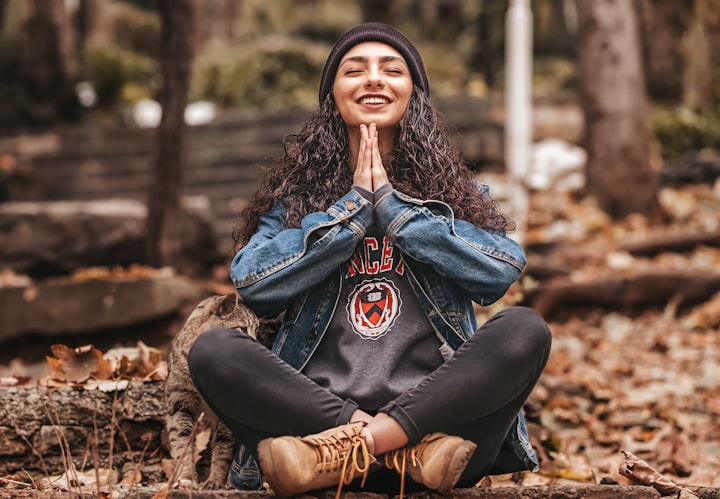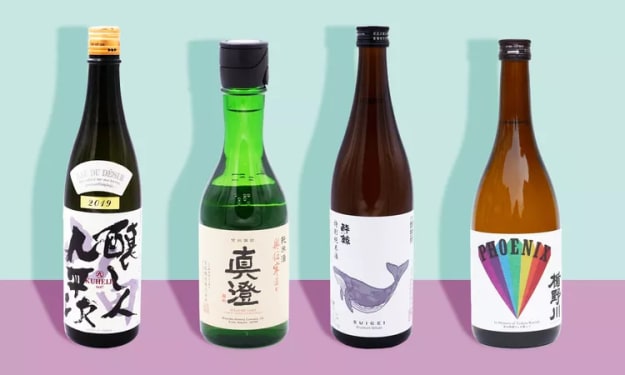How To Get A Peace Of Mind And Improve Your Health And Well-Being
A scientific study showed that meditation boosted people’s immunity.

“Inner peace is the key: if you have inner peace, the external problems do not affect your deep sense of peace and tranquility.” — Dalai Lama (Nobel Prize Lecture)
Mathieu Ricard had just finished his Ph.D. studies in molecular genetics, and from the outside life seemed good. Yet the Frenchman felt that something fundamental was missing. The everyday existence in his hometown of Paris was stimulating, but somehow not enough. A feeling of dissatisfaction grew stronger and stronger, eating away at his psyche.
At 26 years of age, he made a radical move. Quitting his job, and his country, Ricard decided to head over to Darjeeling in India to discover the meaning of life. Finding himself in full view of the mighty Himalayas, he started studying Tibetan Buddhism under Kangyur Rinpoche, a great master in that tradition.
Finally, he had found what he was looking for. It completely transformed him, reshaping his general outlook on the world around him. He is now considered one of the most pre-eminent Buddhist monks of Western origin, sharing his wisdom far and wide.
In his Ted Talk, Ricard gives an interesting analogy for life. He compares life’s ups and downs to a wave in the ocean. At the bottom of the wave, you can hurt yourself. Your body can hit the solid rock of the ocean bottom. On the other hand, at the top of the wave, you feel great. You are a surfer enjoying the world.
Life is like being on that wave. It has its ups and downs. At certain moments, you feel really bad, but at other times you feel awesome. This constant fluctuation of emotions is what causes many of your pains. However, when you look at the entirety of the ocean, things come into perspective. It might have its storms, but in its wholeness, the ocean is calm and tranquil.
This is the way to look at the world. You have to see the entirety. It’s about the overall state that you are in. What Ricard found while studying Buddhism next to the highest mountains of the world is the key to living a happy existence. He discovered a way to have perspective. He found peace of mind.
Currently, the peace of mind of most people is severely disturbed
In the current period, most of us have felt severe disturbances to our mental health. Whether it is through the fear of the unknown, through actually getting sick or seeing loved ones get sick, or through loneliness, your peace of mind has been knocked out of whack. For me, from a mental health point of view, this year has been really tough.
We are told that it’s OK to not be OK, but is it? In his book, “Happiness: A Guide to Developing Life’s Most Important Skill”, Ricard cites several studies that show anxiousness, hostility, and other bad emotions make any bad situation even worse.
“255 medical students took a personality test designed to measure their level of hostility. Twenty-five years later, it was found that the most aggressive among them had suffered five times more cardiac events than those who were less irritable.” — Mathieu Ricard
Buddhism divides emotions into good and bad. Bad emotions are anger, anxiety, greed. These cause a bad state of mind and are the path to suffering. On the other hand, there are also good emotions. These are kindness, compassion, and joy.
Unfortunately, most people often get hijacked by these bad emotions. Countless times I have felt agitated, scared, or depressed. I have gotten angry at the slightest provocation or engaged in arguments that would have been best to avoid. Fact is, these types of episodes usually leave me feeling sick, mentally, and physically.
The road to keeping my bad emotions in check has been full of thorns. However, I realized that if I don’t head on that path, I risk creating my own self-created obstacles. Life is hard as it is, and tripping yourself up just makes things even worse. I decided to work on lessening the impact of bad emotions on my mind and instead of fostering good emotions like joy, compassion, and gratitude.
Now more than ever is the time to turn things around. Finally, it seems like we are beginning to see a light at the end of the tunnel. Vaccines are starting to get rolled out, which could be one of the keys to solving the current problems linked to the pandemic.
The way vaccines work is that they stimulate the body to produce antibodies to the virus, without you actually being infected. If you do come across the virus later, these antibodies come quickly to your rescue, fighting and overcoming these foreign pathogens.
Having a good state of mind can improve the way your body reacts to the vaccine. While this may sound a bit New Age, it has been supported by science. Researchers Richard Davidson and Jon Kabat-Zin conducted a scientific study that looked at the effects that meditation had on novice practitioners after 3 months.
After the 3 months, they were administered a flu vaccine. What was discovered is that their bodies reacted much better to the vaccine as compared to the control group. The meditators were able to produce 20% more anti-bodies than the non-meditators.
“The immune system of these apprentice meditators was also boosted and the flu vaccine that they received in the fall, at the end of the training, was 20 percent more effective than in the control group.” — Mathieu Ricard
Even after only 3 months, meditation was able to create changes in the brain. These changes were correlated with an overall growth in well-being and a peace of mind. In turn, this helped the people in the group by boosting their immunity.
Beneficial mental effects produced beneficial physical effects. This could be what is behind the famous placebo effect. This is where belief in getting better will actually help you to get better. While this type of effect is not all-powerful, it can definitely help. According to Harvard professor and medical doctor Ted Kaptchuk, what is important here is the mind-body connection:
“The placebo effect is more than positive thinking — believing a treatment or procedure will work. It’s about creating a stronger connection between the brain and body and how they work together.”
However, keep in mind that the placebo (and positive thinking) is not a cure-all. It can definitely help though, especially in relieving pain, fatigue, and nausea. When it comes to your health, a positive mindset beats a negative mindset at any time of the day or night.
How to enter a positive state of mind?
Mathieu Ricard has been described as “the world’s happiest man”. The secret to his positive mental state is meditation. Through long years of practice, he has been able to reshape his brain. This has rendered him immune to the individual waves of the ocean and instead showed how to be one with its totality.
Doctor Ted Kaptchuk gives similar insights:
“Engaging in the ritual of healthy living — eating right, exercising, yoga, quality social time, meditating — probably provides some of the key ingredients of a placebo effect.”
As you can see meditation is only one activity among a whole range. There are different activities that can help you to deal with your negative thoughts and emotions, and refocus your mental state. While you have probably heard about their beneficial effects already, I bet that many of you still haven’t implemented them in practice. As wise heads have often repeated, theory is nothing without actual practice.
Meditation and Mindfulness
Studies show that even short periods of meditation can help novices get positive states of mind. Meditation or mindfulness can be done in several ways. For example in Zen Buddhism, you can sit in the zazen posture with your legs crossed, and try to clear your mind. The Rinzai school of Zen has you focus on some paradoxical Zen koans, while the Soto school is more about just being in a state of constant awareness (shikantaza in Japanese).
The great teacher Mathieu Ricard practices Tibetan Buddhism. There the practices are different, with the focus being on creating mental images. On the other hand, Theravada Buddhism, which is prevalent in South-East Asia promotes the following of your own thoughts. Vipassana meditation is part of this tradition.
Go for a walk
However, you don’t need to sit and meditate to get the effects of mindfulness. What I like to do is to take long, reflective walks. Being surrounded by trees, wondering at strange rock formations that I come across, and breathing fresh air energizes me in a way that words can’t describe.
Going into nature can help you to clear your mind, and reconnect with the natural world around you. Many thinkers, like Immanuel Kant, found walking helped them to think better. Professor Frederic Gros, the author of the book “The Philosophy of Walking”, observed that walking is the best way to free your mind from time, space, and the speed of life.
“Yes, speediness. It emancipates you from speediness. And Rousseau says in his “Confessions”, when you walk all is possible. Your future is as open as the sky in front of you.”
Have a routine
Another thing that I have found as having a positive effect on my well-being is having a routine. This can be a morning routine, or a daily routine, or just a list of things that you plan to do during your week.
During the pandemic, I have really worked on solidifying my morning and daily routines. I try to wake up early, do all my hygiene stuff, a little stretching, and then I take my jump rope and go outside my apartment building to exercise. I usually spend 15 to 20 minutes doing that.
It helps me tremendously. And I can see the difference when I don’t do it. Without this, I can feel down. This week I missed out on my morning routine due to persistent insomnia, and the morning cold and darkness (yes, excuses!). My mindset and energy levels haven’t been the same.
As part of the morning routine, I also try to eat a healthy breakfast and to reflect on what I need to do for the day. This morning's reflection is in part influenced by Stoicism, and it lets me prepare for my tasks ahead. Having this type of reflection can help you to keep your stress down and lessen your anxiety.
Some take-aways for you
Ricard has spent most of his life in self-confinement, meditating. So he doesn’t find it scary at all.
“Confinement, of course, for me it’s a wonderful thing.” — Mathieu Ricard
Of course, you are probably not a fully trained Buddhist monk. This means that you don’t have the benefit of all the experience and all the tools that he has at his disposal. So what should you do?
“Make peace with your own mind. Then the time will not feel so heavy and so difficult.” — Mathieu Ricard
There are many ways you can do that, but I have found that these 3 work really well:
* Meditation and mindfulness
* Going for a walk (especially in nature)
* Having a morning and/or daily routine
Practicing these things has helped me to keep sane in an uncertain world full of suffering. I am sure they can do the same for you.
Note: I had published a previous version of this article originally here.
About the Creator
Peter Burns
Peter is extremely curious and wants to know how everything works. He blogs at Renaissance Man Journal (http://gainweightjournal.com/).






Comments
There are no comments for this story
Be the first to respond and start the conversation.